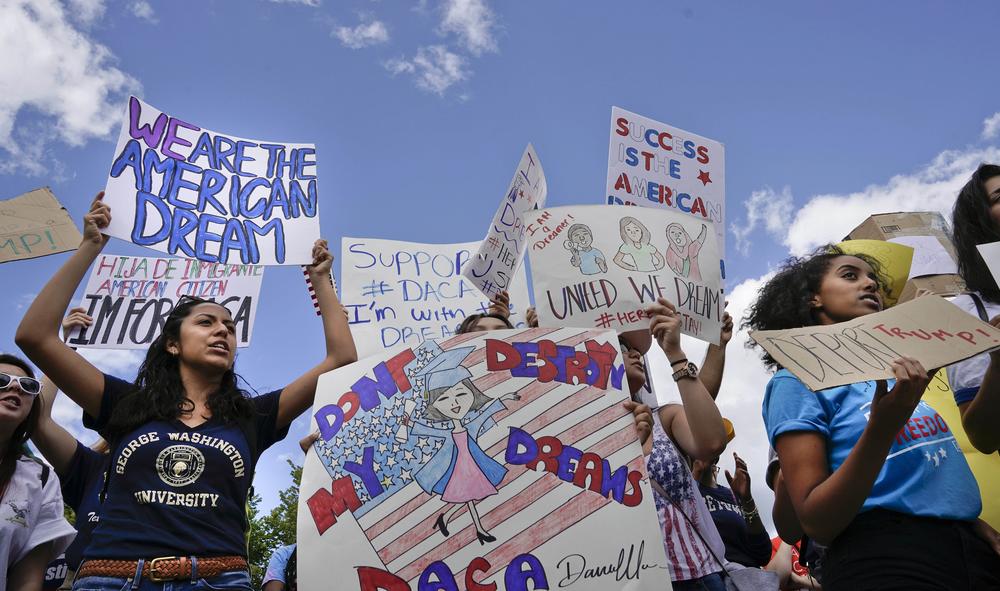Section Branding
Header Content
The Cost Of Removing DACA In Georgia
Primary Content
Last week, the Trump administration announced plans to end the Deferred Action for Childhood Arrivals (DACA) program. This program grants legal protections to people who entered the United States illegally as children. The decision left roughly 800,000 people who rely on the program in a legal limbo. People like Valentina Emilia Garcia Gonzalez. We talked with Gonzalez, who moved to Georgia after growing up in Uruguay. She now attends Dartmouth College in New Hampshire.
If DACA does go away, hundreds of thousands of people may be forced to leave the United States. In announcing the president's decision last week, U.S. Attorney General Jeff Sessions claimed that DACA “denied jobs to hundreds of thousands of Americans by allowing those same jobs to go to illegal aliens.” Does that economic argument hold up in Georgia? We asked Wesley Tharpe of the Georgia Budget and Policy Institute.



